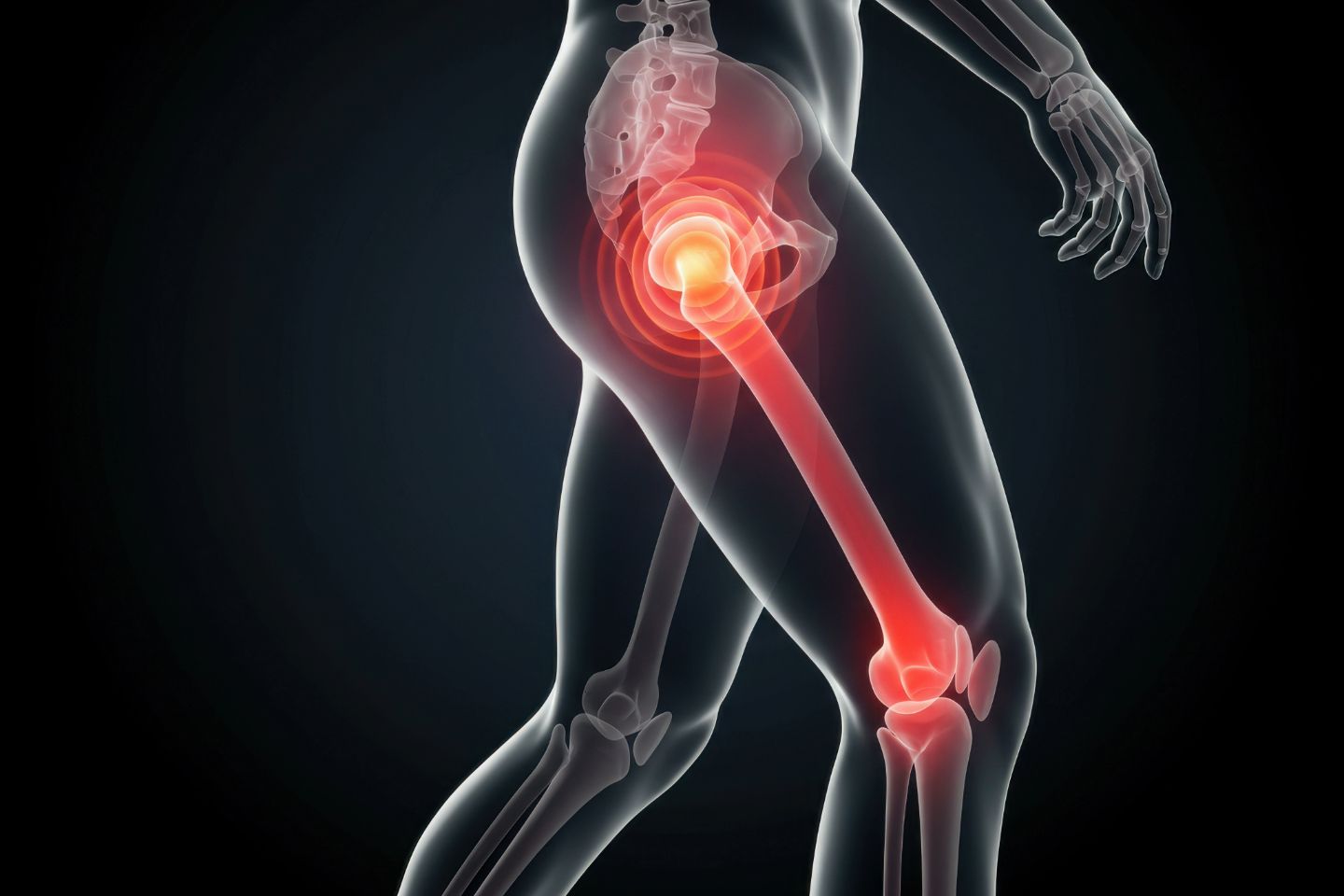
Introduction
Joint pain in the knees or hips can be a real challenge, can't it? At first, you might brush it off, thinking it's just a sign of getting older or the result of a long, busy day. But then, as the pain sticks around or even gets worse, you might start wondering: Is this bad enough that I need surgery? Deciding when to consider surgery can feel overwhelming, but don't worry—this article got you covered. In this blog, we'll walk through everything you need to know in simple, straightforward terms to help you figure out what's best for you.
Common Causes of Knee and Hip Pain
Pain in the knees or hips can come from all sorts of things, and figuring out what's causing it is the first step to understanding how serious it is. Let's look at some common culprits:
Osteoarthritis: This is the most common cause. It happens when the cartilage that cushions the joint starts to wear down over time, leading to pain, swelling, and stiffness.
Rheumatoid Arthritis: This is an autoimmune condition that causes inflammation in the joints, which can lead to pain and even deformity.
Injuries: Accidents or sports injuries can damage ligaments, cartilage, or bones, leading to long-lasting pain.
Bursitis: This occurs when the fluid-filled sacs (bursae) that cushion your joints become inflamed, causing discomfort.
Hip Fractures: More common in older adults, hip fractures can cause severe pain and mobility problems.
Tendonitis: Overusing your joints can lead to inflammation in the tendons, which can be painful.
While some of these conditions can be treated with rest or medication, others might require more serious interventions. It's important to get a proper diagnosis to determine the best course of action.
Severity Checklist: When to Consider Surgery for Joint Pain
How do you know if your knee or hip pain has reached a point where surgery might be necessary? Here are some key signs to keep an eye on:
Chronic Pain: If the pain is with you most days and lasts for months, it could be a sign that something deeper is going on.
Limited Mobility: Are you having trouble walking, climbing stairs, or doing basic daily activities? Difficulty moving your joint can indicate serious damage.
Pain at Rest: If joint pain keeps you up at night or hurts even when you're resting, it could be a sign that the problem is more severe.
Swelling and Inflammation: If the swelling doesn't go down with ice or medication, it could suggest structural damage inside the joint.
Frequent Instability: Does your knee or hip feel like it might give out or feel unstable? This could mean the joint is too damaged to support you properly.
Failed Treatments: If physical therapy, painkillers, or other non-surgical treatments haven't worked, surgery might be the next step to consider.
It's important to pay attention to these signs and listen to your body. Severe joint issues often won't improve on their own, so seeking the right treatment is crucial.
When Conservative Treatments Stop Working
Before jumping straight to surgery, doctors usually recommend trying some conservative treatments first. These options can help alleviate pain and improve joint function:
Physical Therapy: Exercises that focus on strengthening the muscles around the joint can provide support and reduce pain.
Pain Management: Over-the-counter or prescribed painkillers can help manage pain and make movement easier.
Assistive Devices: Using a cane, brace, or walker can help take some of the pressure off your joint and make it easier to get around.
Lifestyle Changes: Managing your weight and doing low-impact activities like swimming or cycling can help reduce the stress on your joints.
But what happens when these measures no longer work? If you're still dealing with significant pain or struggling to do everyday tasks despite trying these options, it might be time to consider surgery as the next step. It's important to talk with your doctor about what's best for you.
Risks of Delaying Joint Replacement Surgery
A lot of people hesitate to consider surgery, often because they're worried about the recovery process or hoping the pain will just go away on its own. But delaying surgery can bring its own set of risks:
Worsening Joint Damage: As time goes on, the joint can continue to deteriorate, which may make the surgery more complicated and extend the recovery time.
Muscle Weakness: If you're not moving around much because of the pain, you could lose muscle strength, which can make rehab after surgery harder.
Reduced Quality of Life: Chronic pain can limit your ability to enjoy daily activities, and over time, it can start affecting your mental health and social life, too.
Risk of Falls: If your joint is unstable or causing a lot of pain, you're more likely to fall and possibly injure yourself further.
It's completely normal to feel hesitant, but waiting too long might just lead to more pain and complications down the road. It’s worth talking to your doctor to weigh the pros and cons of waiting versus going ahead with surgery.
The Next Steps: Consulting Your Doctor
If you're noticing any of the signs mentioned above, it's time to reach out to a doctor. Here's what you can expect when you go in for a consultation:
Medical History: Your doctor will ask you about your symptoms, lifestyle, and any treatments or therapies you've tried. This helps them understand the full picture.
Physical Exam: They'll examine your joint, checking for things like range of motion, swelling, and stability to assess the severity of the issue.
Imaging Tests: To get a clearer view, your doctor may recommend X-rays, MRIs, or CT scans. These tests can show how much damage is in the joint.
Treatment Plan: Based on your condition, the doctor will recommend the best next steps. This could include surgery if they feel it's necessary.
Being open and honest about your pain, limitations, and daily struggles will help your doctor guide you toward the right treatment. The more information they have, the better they can support you in making the right decision.
DESTIKNEE by Meril
DESTIKNEE is a total knee replacement implant designed to restore mobility and improve joint function for individuals suffering from severe knee pain due to arthritis or injury. Engineered for durability, stability, and natural movement, DESTIKNEE helps patients regain their ability to walk, bend, and perform daily activities with ease. Its advanced design ensures optimal fit and alignment, reducing post-surgery discomfort and enhancing long-term performance.
LATITUD HIP REPLACEMENT SYSTEM By Meril
The LATITUD™ Hip Replacement System is designed to restore natural hip movement and improve quality of life. It features an uncemented femoral stem with special grooves for stability and a coating that encourages bone growth, ensuring a secure fit. Available in different sizes, it allows for a personalized approach to help patients move comfortably again.
Conclusion
Knee or hip pain can be frustrating, but the good news is you don't have to live with it forever. Understanding how severe your pain is and knowing when it might be time to consider surgery can really improve your quality of life. Pay attention to the symptoms, try out conservative treatments, and don't hesitate to consult your doctor if the pain doesn't get better. The goal is always to help you move better and live without pain. So why wait? Take that first step today and get the support you deserve!
References
SHARE NOW



